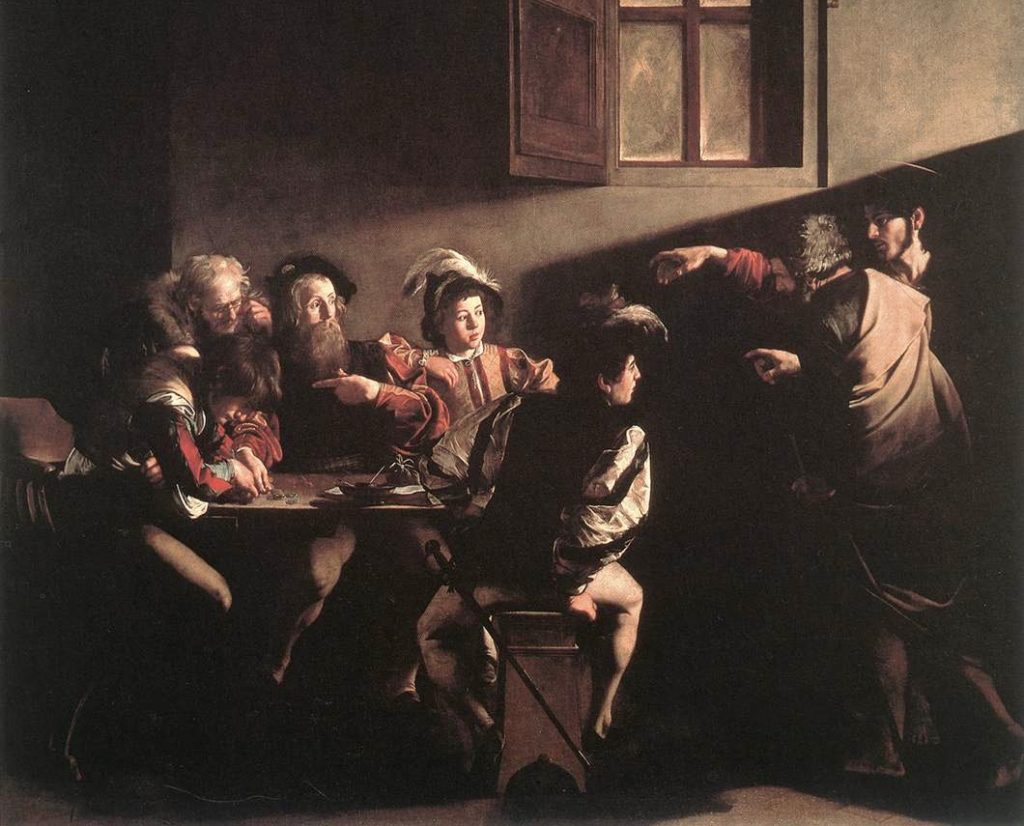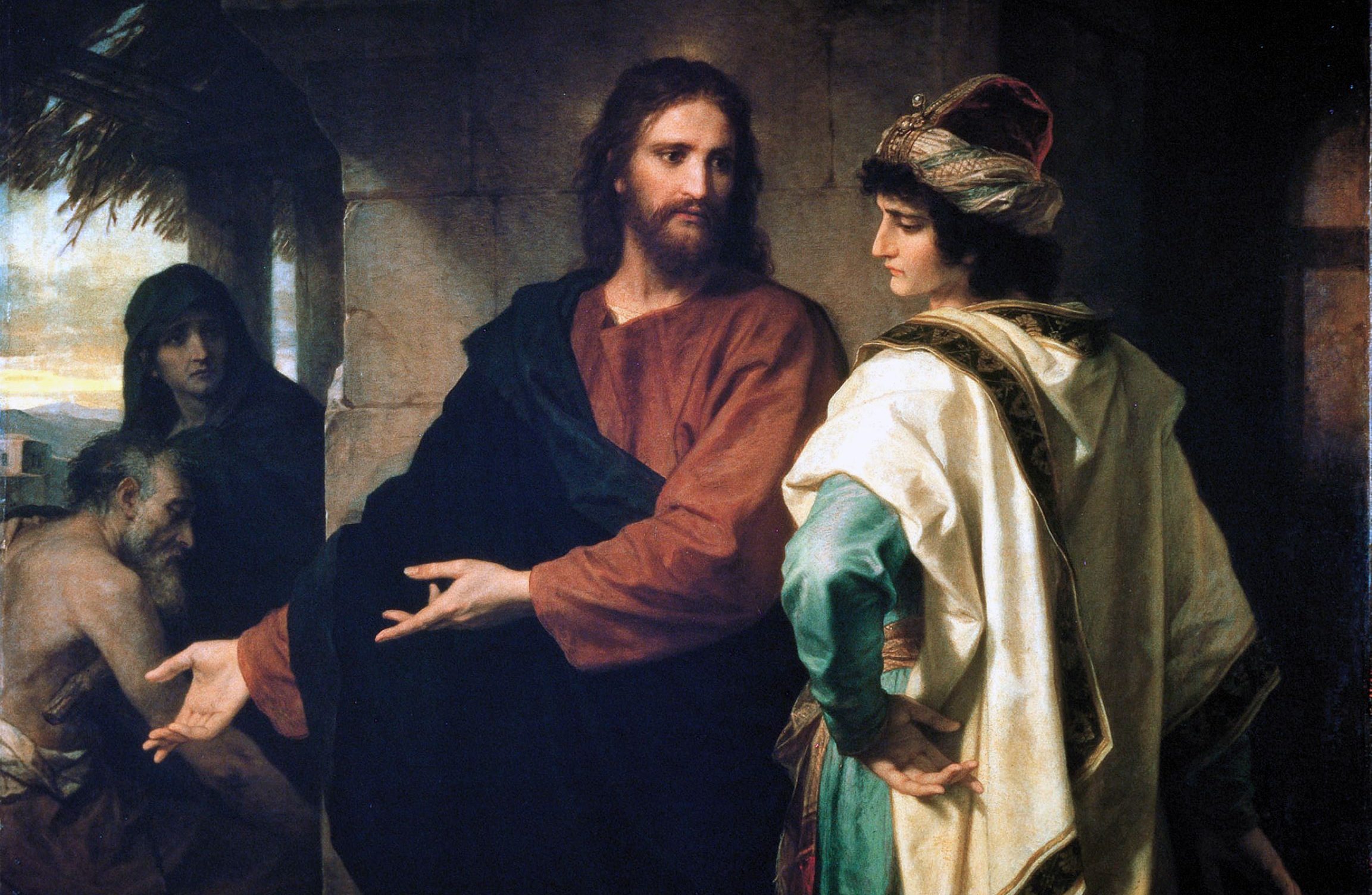Head Image: “Christ and the Rich Young Ruler” by Heinrich Hofmann
By Amber Kinloch
A few days back, for the feast of St. Matthew, I heard a homily where the priest compared St. Matthew and the rich young man. He pointed out how the rich young man approaches Jesus and presses Him, asking what he must do to inherit eternal life. Jesus tells him to keep the commandments. The young man says he’s done so, and asks what he still lacks. Mark’s Gospel then tells us that Jesus, looking at the young man, loved him, and said, “You are lacking in one thing. Go, sell what you have, and give to [the] poor and you will have treasure in heaven; then come, follow me” (Mark 10:21). We all know how the story ends: the young man departs in sadness because he has many possessions.
St. Matthew is also a rich man, though not such a virtuous one on the surface. As a tax collector, he worked for the Romans and would have padded the sum he collected in order to feather his own nest. His fellow Jews would have despised him.
Unlike the rich young man, he does not go looking for Jesus. As Father said, he probably got up that morning thinking it’d be a normal day and pondering how much money he would make. Then Jesus passes by.

Jesus’ call is sudden and unexpected. “Follow me,” He says (Matthew 9:9). That’s it. There’s no formal introduction or preambulatory dialogue as there is with the Samaritan Woman (John 4:4-42) and others. There’s no, “If you follow Me, here are the conditions and here’s what you’ll get.” It’s a pressing, barebones call.
Shockingly, Matthew responds with a “yes.”
From a human standpoint, it’s crazy. Matthew is rich. He has a house and many friends, as we see from the banquet he promptly hosts for Jesus. His life seems pleasantly settled. And—most strikingly—he was not seeking Jesus. Why did he follow Him?
Only Matthew can answer that for us. Perhaps he’d heard about Jesus and was curious to know more. Maybe he’d felt empty inside for a long time and something in Jesus’ gaze spoke to him. We don’t know. The important thing is, he obeyed.
What about us? Perhaps we tend to approach Jesus with a half-open heart like the rich young man. Maybe we have an “everything for You, Lord, except this” attitude. Are we even seeking Jesus at all? Do we seek Him out in prayer and in our daily lives for His own sake, or for what He can give us? Are we like St. Matthew, who abandoned all that he had to follow Jesus?

Amber Kinloch
Amber writes from the bunker of her living room. There she hunkers down with her laptop and a blanket while keeping an eye and ear tuned in to the activity of family life. Music set on loop keeps her energy flowing as she muses on the deeper happenings of ordinary life and what food to restock the fridge with.






0 Comments